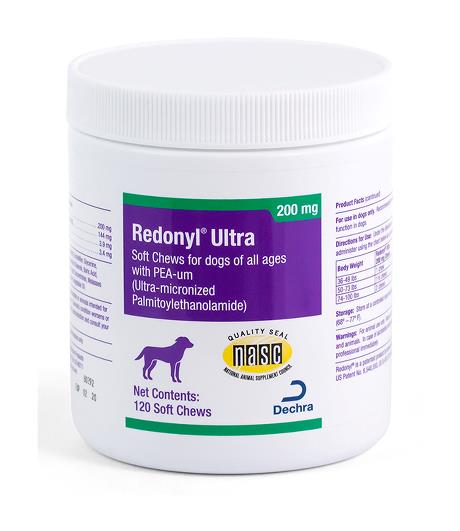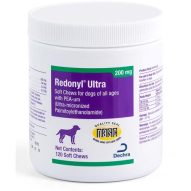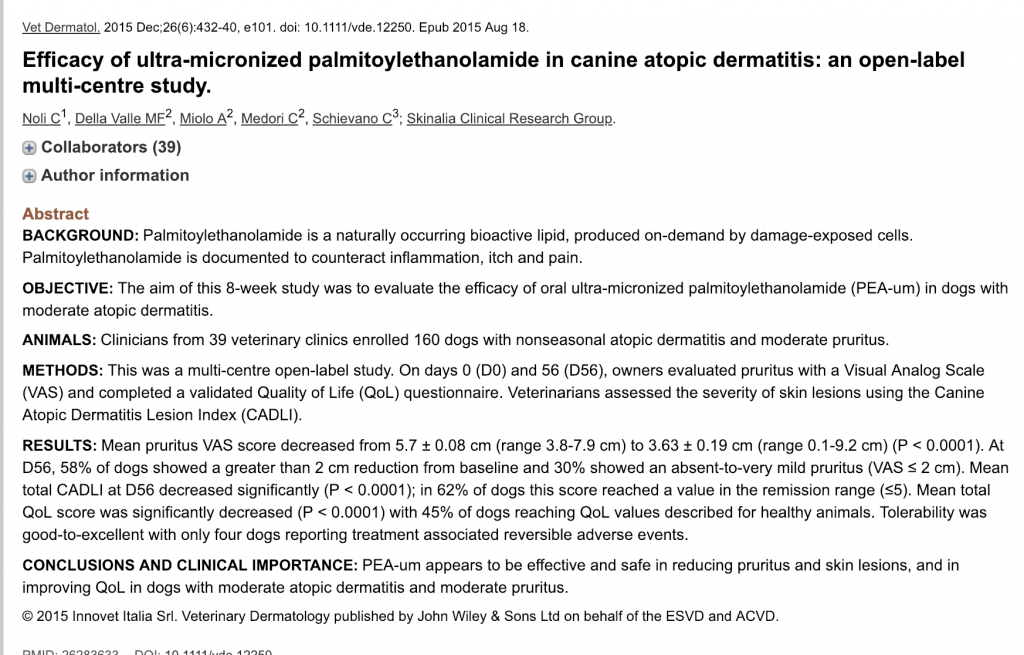New fatty acid to help with allergies in dogs | Dr. Justine Lee, DACVECC, DABT, Board-Certified Veterinary Specialist
My dog has allergies. What can I do at home? Well, read on.
Did you know that allergic skin disease is one of the top causes of skin and ear disease in dogs and cats? It’s estimated that up to 15% of dogs are affected by atopy. What are some of the signs of allergies in dogs?
- Licking at the paws
- Foul smell in the ears
- Scratching at the ears
- Brown staining of the toes/paws
- Itching
- Hair thinness or loss over the thighs, ears, backend
- Red bumps on the skin
- Malodorous skin
- Greasy feel to the skin
- Redness to the skin
- Discomfort
- Leaning the ears into your hand as you massage them (itchy!)
As a veterinarian and dog and cat owner, I know what it’s like to have to deal with medical problems in my own pets. And unfortunately, both my pets have allergies. My dog has atopy (which is the human equivalent of “hay fever”) and my cat has food allergies (requiring a really expensive, novel protein diet.
First, before you think your dog has “allergies,” it does require a specific work up with your veterinarian. Has underlying infection (like mites, mange, etc.) been ruled out with a skin scrape? Was cytology (e.g., tape prep) done and looked at under a microscope to make sure there wasn’t a secondary yeast or bacterial infection (which would require antifungals or antibiotics, respectively)? Were topical medications tried? Was skin testing or a food allergy trial done? When in doubt, please check with your veterinarian or even a veterinary dermatologist to make sure your dog is being worked up and diagnosed correctly.
That’s because we want to make sure we are treating your dog or cat’s skin disease correctly. Additional treatment for “itchiness” may include:
- flea and tick medication
- steroids like prednisone
- antibiotics if a skin infection is present
- immune therapy drugs like Atopica, Apoquel and Cytopoint)
- different types of food
However, what if you don’t want to constantly give drugs to your dog?
Again, as a veterinarian and pet owner, I’m always looking for the best ways of making sure my pets are healthy, happy and not itchy. So I personally decided to try a new “holistic” approach to treating my dog’s itchiness and chronic ear infections. In full disclosure, I was given a container of Redonyl® Ultra soft chews to try out free.
So what the heck is Redonyl?
Redonyl is a nutritional supplement that contains concentrated forms of essential fatty acids, Palmitoylethanolamide (PEA) and Biotin, which are “delicately balanced to support the physiology of the skin barrier.” It also helps improve the skin and coat health of your dog. It’s part of a multi-modal approach to help “support skin function” specifically in cases of dermatosis (skin disease) and excessive hair loss (which my dog gets in his inner thighs). PEA is a naturally-occurring “biomodulator” that helps against the mechanisms that contribute towards pain and inflammation. Biotin is a product that helps synthesize fatty acids and supports skin. This just came out in the United States in 2018, but has been available in Europe earlier.
This can be a benign, tasty way that allows a holistic approach to treating your dog. My dog? He views this as a bonus treat in his food. I’ve found Redonyl to be really tasty for my dog and he gulps it down readily with his food. It’s also hypoallergenic so ok to give in dogs with food allergies too.
So what’s the veterinary evidence? Does it work? In an 8-week study of 160 client-owned dogs, oral PEA-um was shown to be beneficial for skin health associated with skin allergies. Only 4 dogs experienced associated reversible adverse effects. “PEA-um appears to be effective and safe in reducing pruritus and skin lesions,” the study authors wrote, “and in improving quality of life in dogs with moderate atopic dermatitis and moderate pruritus.”
Also, the active ingredients in Redonyl are used to treat other things too like eczema, dry skin, neurodegeneration, pain, etc. You can find that published study here:
Palmitoylethanolamide for the treatment of pain: pharmacokinetics, safety and efficacy
For more information, you can click on this brochure here:
There are two different sizes available (100 and 200 mg), depending on the size of your dog. For more information, you can visit Dechra’s site here: http://bit.ly/2iNa2Ik




Love having an alternative. I NEVER want to give drugs to my dog unless I absolutely have to.
Comment *I appreciate having an alternative option. I prefer not to give drugs to my dog unless it is absolutely necessary.